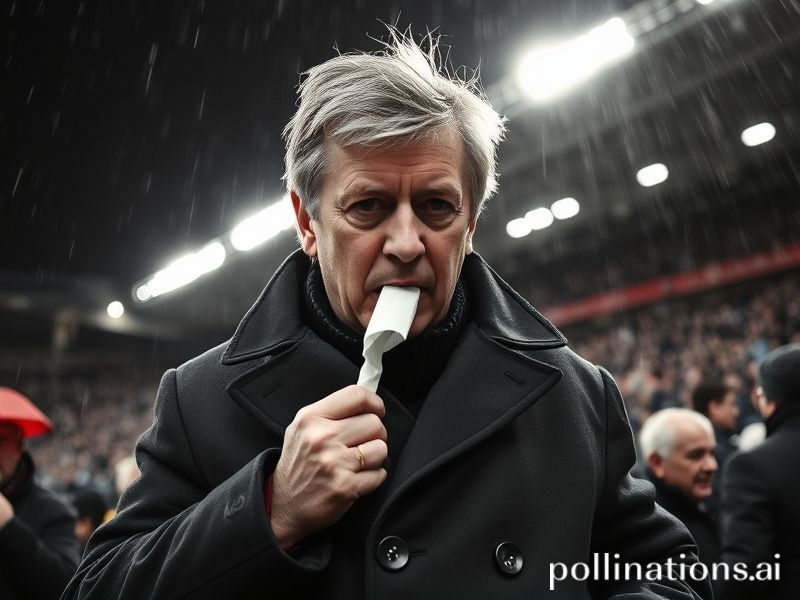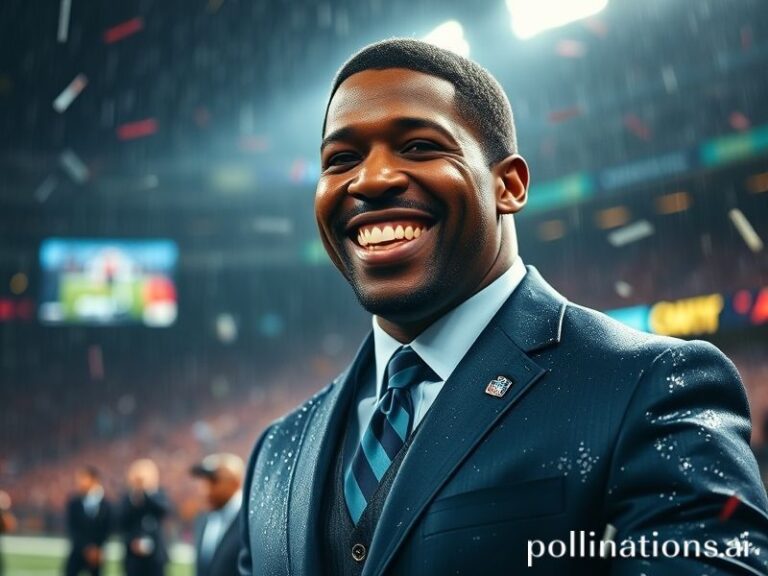Sir Alex Ferguson: The Last Global Emperor in a Red Shirt
Sir Alex Ferguson: The Last Emperor of an Empire That Wasn’t Even His
By our man in the cheap seats, watching from a safe diplomatic distance
There is a moment—usually just after the third glass of something brown and Scottish—when foreign correspondents admit that the most durable empire of the late 20th century was not British, Soviet, or even American, but Mancunian, headquartered in a red-brick stadium off Sir Matt Busby Way and administered for twenty-seven imperial years by a gum-chewing Glaswegian with the bedside manner of a tax audit. Sir Alex Ferguson did not merely manage Manchester United; he ran a parallel United Nations where veto power came in the form of a hair-dryer blast to the ear and sanctions were measured in bench time.
From Lagos to Laos, the brand carried farther than any Union Jack. In Jakarta’s gridlock you’ll see number-seven shirts that pre-date David Beckham’s fame, relics of a time when satellite dishes bloomed on rooftops like grey mushrooms and the Premier League slipped into every living room that had electricity and a forgiving landlord. Ferguson’s teams—part velocipede, part velociraptor—were the first pop-culture export that didn’t require subtitles. The world learned English swearing by watching him berate fourth officials in HD.
Ferguson’s genius lay in understanding that football is politics by other means. While the actual United Nations busied itself passing strongly worded press releases, he perfected the art of the permanent security council: buy the best striker before your rival can, cultivate youth like a Cold War spy ring, and always—always—control the narrative. When the BBC dared investigate his son’s transfer dealings, he simply exiled the broadcaster for seven years, a media cold-shoulder that would make Putin blush.
Internationally, this translated into soft power on steroids. The British Foreign Office never managed to make the world care about Magna Carta, but Cristiano Ronaldo’s step-over did the trick. Every time United toured the Far East, teenage riot police lowered their shields to take selfies, proving conclusively that soft power works best when it comes with abs. British embassies could only dream of such influence; all they offered was visa queues and lukewarm tea.
Yet for all the global reach, Ferguson’s reign was a monument to the ancient truth that every empire is built on unpaid overtime. The Class of ’92 were essentially feudal apprentices, bonded to the manor until they could land a boot-deal fiefdom elsewhere. Ryan Giggs ran up and down the wing so many times he qualifies for EU freedom of movement retroactively. Meanwhile, Wayne Rooney, the working-class Cro-Magnon with a forehead like municipal architecture, was flogged into the record books until his hairline surrendered somewhere over the English Channel.
There is, naturally, a darker punchline. The very dominance that thrilled satellite subscribers from Senegal to Seoul also accelerated the hyper-capitalist carnival now devouring the sport. Ferguson’s success convinced American speculators, Gulf sheikhs, and Russian oligarchs that a football club was a gilt-edged passport to global relevance. Today’s game is a leveraged buy-out with corner flags, and the old emperor can only watch from the directors’ box as his fortress becomes a tourist-trap museum selling £18 cheese pies.
Still, for a brief, implausible spell, one man’s habit of chewing his cud and spitting out trophies managed to unite a fractured planet in collective swearing at referees. That is no small legacy in an age when the real United Nations can’t even agree on the lunch menu. Sir Alex Ferguson proved that empire need not be geographic; sometimes it is simply an idea, wrapped in a scarf, broadcast at 3 p.m. Greenwich Mean Time to a billion screens glowing in the dark like votive candles.
And so, as the world careers from one crisis to another—pandemics, populists, and that curious habit nations have of shooting down their own economies—there remains a reassuring constancy: somewhere, on some dusty pitch, a kid is practicing free kicks because, once upon a television, he saw a red devil in a number seven shirt bend physics to his will. The empire may be gone, but the adverts linger.







